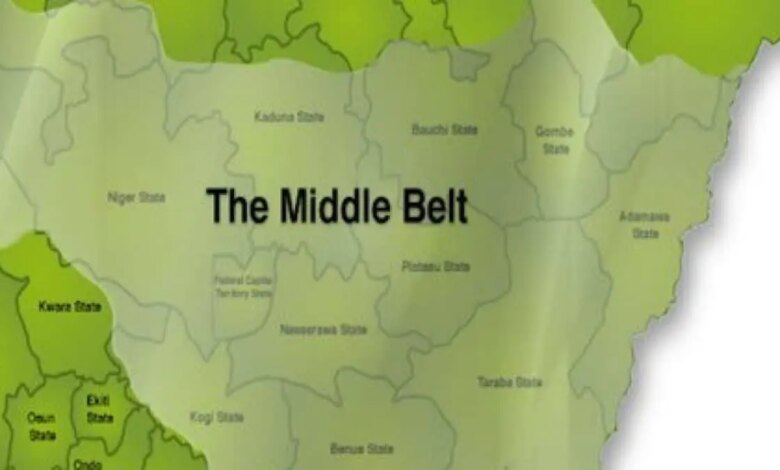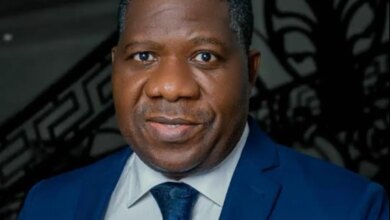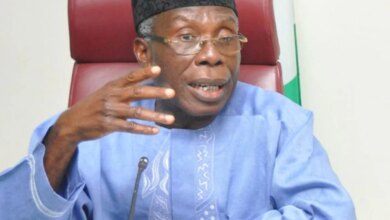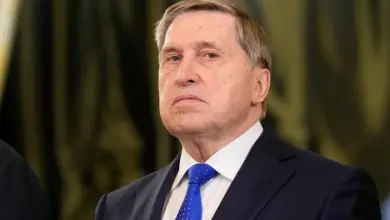Middle Belt opposes Sultan as co-chair of proposed National Council for Traditional Rulers

The Middle Belt Forum, MBF, has expressed firm opposition to a contentious clause in the National Council for Traditional Rulers of Nigeria (Establishment) Bill, 2024, currently before the National Assembly, which proposes that the Sultan of Sokoto and the Ooni of Ife be made permanent co-chairmen of the proposed National Council for Traditional Rulers.
The bill, sponsored by Senator Simon Bako Lalong (Plateau South), a respected son of the Middle Belt and the Gwad-Goemai of the Goemai ethnic nation, has passed its second reading as of March 2025 and is now under consideration by the Senate Committee on Establishment and Public Service.
National spokesman of the forum, Mr Luka Binniyat, said in a statement: “At the heart of the controversy lies a deeply troubling clause in the Bill which proposes that the Sultan of Sokoto and the Ooni of Ife be made permanent co-chairmen of the proposed National Council for Traditional Rulers.
“While we leave our esteemed partners from the Southern region to determine their position on the inclusion of the Ooni of Ife, the Middle Belt Forum unequivocally rejects, abhors, and condemns the institutionalisation of the Sultan of Sokoto as a permanent co-chairman of this proposed council.
“This rejection is anchored on strong historical, cultural, constitutional, and moral grounds that the Sokoto Sultanate is historically junior to Middle Belt monarchies.
“Historically, the Sokoto Caliphate is a relatively young institution compared to ancient kingdoms and confederacies in the Middle Belt. For instance, the Kwararafa Confederacy, which flourished for centuries, predates the Caliphate. It is a historically documented fact that the confederate state of Kwararafa existed right back to circa 800s–1700s A.D. The Aku Uka of Wukari, its current spiritual heir, represents a legacy that predates the Sokoto Caliphate’s very existence. The Sultan of Sokoto can therefore not supersede the Aku Uka of Wukari in status and prestige to seat over him as Chairman of the Traditional Council created by law.”
The statement further noted that the Attah of Igala ranks higher in historical and traditional status, stressing that the Attah of Igala, whose kingdom flourished well before and after the 14th century, occupies a higher pedestal in terms of history, cultural roots, and legitimacy.
“The Igala Kingdom never came under the caliphate’s domain and continues to represent deep-rooted indigenous authority far older and more authentically Nigerian than the Sokoto Sultanate.
“The Tor Tiv represents a powerful, independent cultural identity. The Tiv nation, one of the largest ethnolinguistic groups in Nigeria, was never conquered by the Sokoto Caliphate. The Tor Tiv stands as the supreme symbol of a proud, resilient people who were acephalous and thrived independently before colonial rule. To ask that the Tor Tiv permanently defer to the Sultan in council matters is a gross distortion of historical facts and a violation of indigenous dignity,” the statement argued.
It added that the Nupe kingdom preceded the Sokoto Caliphate with a proud lineage dating back to the 15th century, and has its own deep-rooted traditional structures, stressing that even though Fulani jihadists eventually imposed Islamic rule in Nupe land post-1835, the Etsu Nupe today still represents an enduring cultural institution that predates the Caliphate; hence, in no logical or historical context can the Caliphate claim seniority or supremacy over Nupe tradition.
The Sultan, the forum submitted, is primarily a religious leader, not a secular traditional monarch, explaining that in Nigeria today, the Sultan of Sokoto is widely acknowledged as the spiritual head of all Nigerian Muslims, particularly across the 19 Northern States and the FCT, as his spiritual leadership role is fundamentally religious.
The statement warned that if the Senate passes the Bill with the contentious clause and it is assented to by the President, the forum will mobilise all ethnic nationalities across the Middle Belt to boycott participation in the Council.
It added that traditional rulers of the Middle Belt will neither recognise nor attend meetings of a council whose leadership is permanently skewed in favour of a non-indigenous, religiously aligned and lesser monarch.
“We shall, in accordance with constitutional liberties, form our own autonomous Council of Middle Belt Traditional Rulers, which shall reflect the historical, cultural, and moral values of our people,” it said.
To preserve national unity, equity, and fairness, the forum suggested that the chairmanship of the council should be rotational and cut across all geo-political zones or ethnic blocs.
It added that it should also be tenure-based in a manner that gives all traditional rulers and their peoples a sense of belonging and dignity. Another alternative, it said, would be for traditional rulers themselves to democratically choose their chairperson(s) through a transparent, inclusive process that reflects Nigeria’s pluralism.





